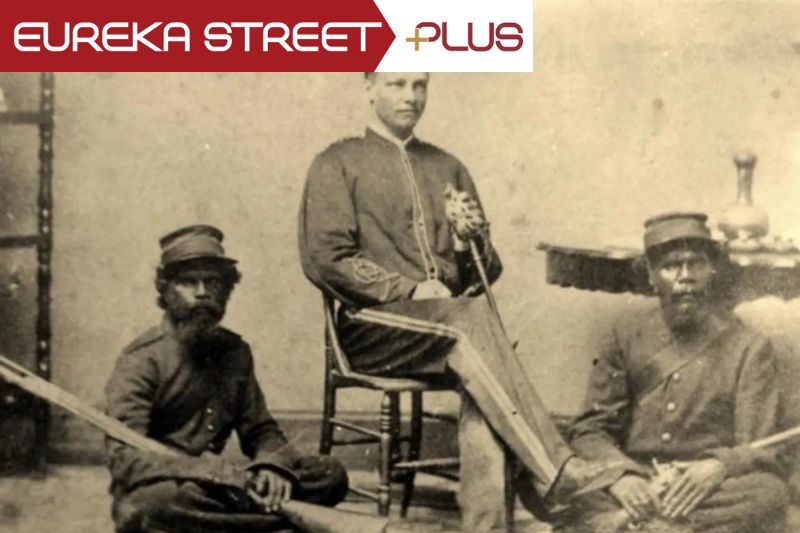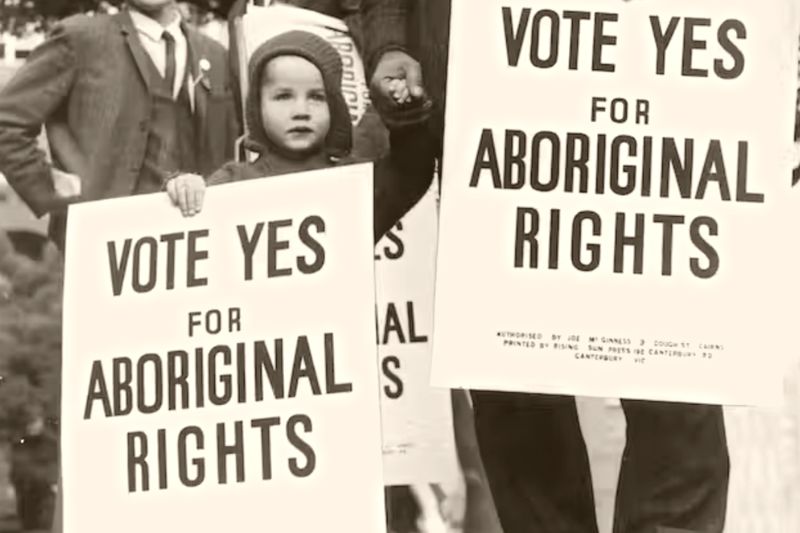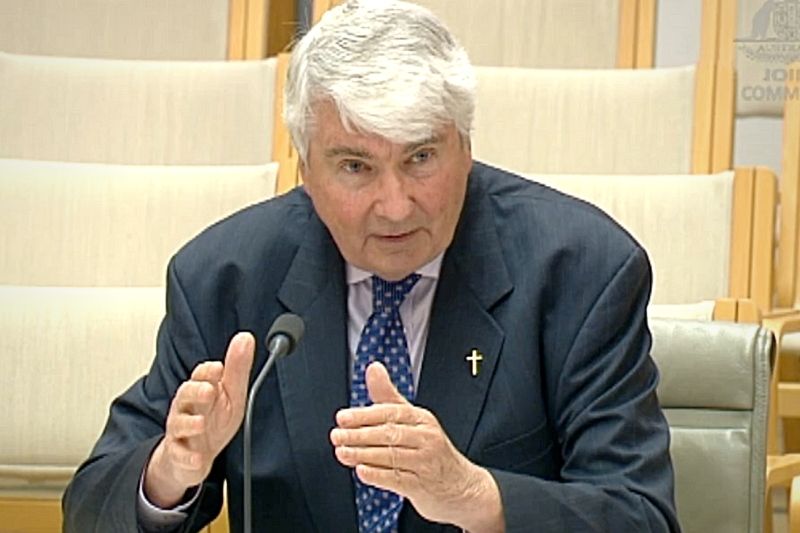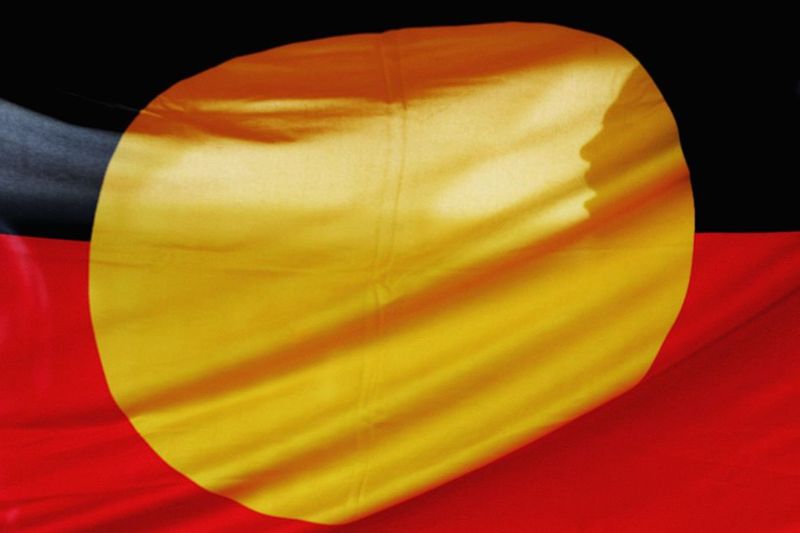Keywords: Queensland Christian Lawyers
-

ARTS AND CULTURE
- Peter Craven
- 20 October 2023
3 Comments
In Killing for Country, David Marr confronts Australia's dark colonial past, revealing unsettling truths about the Australian Native Police's brutal acts. Published during the Voice referendum, Marr intertwines personal ancestry with national guilt, urging Australians towards truth-telling and reconciliation. This isn't just history; it's a call for atonement.
READ MORE 
-

AUSTRALIA
- Frank Brennan
- 05 June 2023
19 Comments
The wording of the proposed change to the Australian Constitution to enshrine a First Nations Voice might not be perfect. But whatever the imperfections and the risk of future complications, it is high time that Australia’s First Peoples were recognised in the Constitution in a manner sought and approved by a broad cross-section of Indigenous leaders.
READ MORE
-

AUSTRALIA
- John Warhurst
- 04 May 2023
20 Comments
Frank Brennan's book An Indigenous Voice to Parliament: Considering a constitutional bridge is an urgent contribution to this important national debate around the shaping of the Voice and the referendum question. It is a book concerned with what’s likely to be successful rather than a manual on how to vote.
READ MORE
-

AUSTRALIA
- Frank Brennan
- 05 January 2023
We have a lot of work to do if there is to be any prospect of a successful referendum on the Voice to Parliament, which Indigenous people have put to us as the mode by which they want to be recognised in the Constitution. They have said they want a Voice. Now, we can debate whether it be a Voice to Parliament or a Voice to Parliament and government, or a Voice just about particular laws.
READ MORE
-

AUSTRALIA
- Frank Brennan
- 01 December 2022
15 Comments
We have a lot of work to do if there is to be any prospect of a successful referendum on the Voice to Parliament, which Indigenous people have put to us as the mode by which they want to be recognised in the Constitution. They have said they want a Voice. Now, we can debate whether it be a Voice to Parliament or a Voice to Parliament and government, or a Voice just about particular laws.
READ MORE 
-

RELIGION
- Frank Brennan
- 17 February 2017
3 Comments
The commission's forensic scrutiny of past actions of church officials in no way constitutes an interference with the freedom of religion. Its spotlight is to be welcomed, provided only that it is shone on a truly representative sample of all institutions which have been found wanting and provided the same light filter is applied to all institutions. I do however have a problem with the commission making findings on issues like the want of compassion when those findings are made only against a Church.
READ MORE
-

RELIGION
- Frank Brennan
- 27 November 2015
2 Comments
'The crisis of child sexual abuse in our societies has required that our institutional procedures be more transparent and that we learn from the ways of the world in exercising power openly and justly. This means we have to restructure some of our church arrangements so that power is exercised accountably and transparently. All of us who have positions of influence and power in institutional churches need to be attentive to the voices of those who have suffered within our institutions.' 'Discerning the place for the prophetic voice and pragmatic cooperation of the churches in the great moral questions of the age', address to the Association of Practical Theology in Oceania conference, 26 November 2015.
READ MORE
-

- Frank Brennan
- 04 June 2015
23 Comments
As we await Cardinal Pell's appearance before the Royal Commission, many Australians are baying for his blood. It is time for those of us in the Church to stop paying undue deference to those who exercise ecclesiastical power in a fashion at odds with contemporary notions of transparency and equality. It's also time for all commentators to play the ball, and not the man.
READ MORE
-

AUSTRALIA
- Frank Brennan
- 22 September 2014
5 Comments
Considering my indebtedness to the two Aborigines who met [my family's ship arriving in Hervey Bay from Ireland] 151 years ago, I owe it to all my fellow Australians to agitate these issues of law, morality and politics here in Ireland so that back in Australia, the homeland which, in my religious tradition, was known as the Great South Land of the Holy Spirit.
READ MORE
-

AUSTRALIA
- Frank Brennan
- 11 February 2014
1 Comment
'The market for disability services will need to be underpinned with a strong and robust internal risk management framework. There will be an increasing number of for-profit operators in the sector. Hopefully the not-for-profit operators will make the necessary adaptations competing in the market and providing the ethos for the market to deliver services in a dignified, fair and transparent manner.' Frank Brennan's Leading the Way Seminar for the National Disability Service
READ MORE
-

RELIGION
- Frank Brennan
- 25 October 2013
2 Comments
'The Church should not give any appearance of hiding behind the corporate veil. Justice demands that present church leaders agree to satisfy any judgment debt against their predecessors or their deceased predecessors' estates when there is an allegation of past failure to supervise or adequately investigate a sexual predator in the ranks. Any damages should be paid from church assets.' Frank Brennan addresses the Australian Lawyers Alliance Conference, Rydges Lakeside, Canberra, 26 October 2013.
READ MORE
-

AUSTRALIA
- Frank Brennan
- 07 September 2013
12 Comments
How clever of you to choose the day of the federal election for me to offer these reflections. I come amongst you, not as a publisher or journalist but as an advocate in the public square animated by my own religious tradition as a Jesuit and Catholic priest engaged on human rights issues in a robustly pluralistic democratic society.
READ MORE